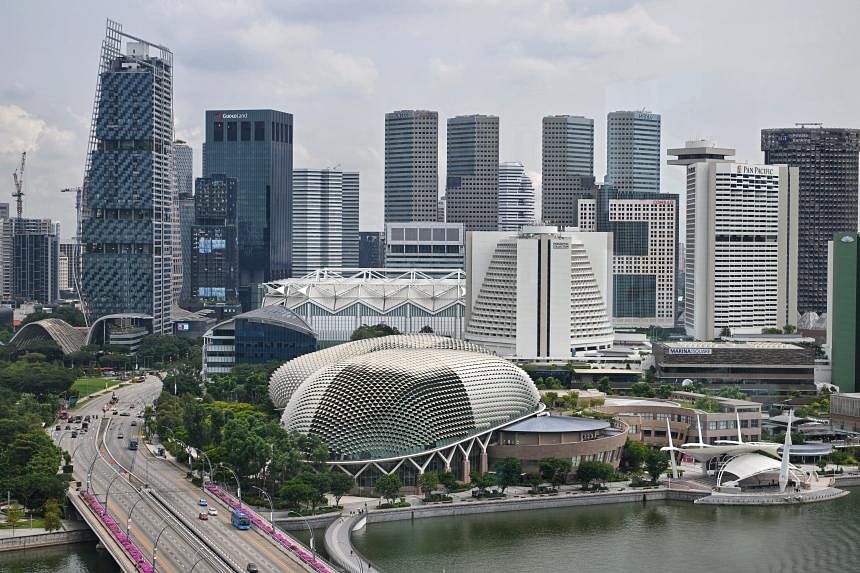SINGAPORE - The Republic placed third in a worldwide ranking of economies’ digital competitiveness, after having been ranked fifth in 2021 during the Covid-19 pandemic.
The nation’s improved performance was down to its strong standing in policymaking and in training and research, among other factors, according to the survey which compared 64 economies based on their approaches to digitalisation.
The seventh edition of the World Digital Competitiveness report was published on Nov 30. It was compiled by the World Competitiveness Centre (WCC), a research centre at the International Institute for Management Development, an independent academic institution based in Singapore and Switzerland.
Each economy’s performance is judged based on three fields comprising a range of indicators.
In the field of knowledge, an economy’s international experience, mathematical and tech skills are assessed; investments and Internet infrastructure are considered for its technological prowess; and future readiness takes into account digital adoption and cyber security, among other factors.
Singapore was ranked after the United States, which took the top spot, and the Netherlands, which was ranked second.
Denmark dropped to fourth place after having topped the list in 2022.
The report found that Singapore’s improved ranking was due to its world-leading country credit rating and Internet bandwidth speed scores that helped it to take top spot in the technology segment.
Singapore ranked first in “enforcing contracts” – making sure contracts between companies and governments are adhered to.
This is a sign of institutional strength as it provides stability for social, economic and political outcomes, WCC senior economist Jose Caballero told The Straits Times.
Wireless broadband adoption and tablet ownership rates are also among the highest globally in Singapore.
It also performed well in research and higher education achievement, including mathematics.
Areas of improvement for Singapore include its thin pipeline of senior managers with significant international experience, which would have helped the country to take a higher spot in the 2023 rankings.
The report also found a lack of female researchers here and inadequate privacy protection laws.
Singapore fell to fifth place in 2021 due to a drop in investment and digital integration at the time. The Republic placed second in 2019 and 2020.
When asked if the drop in 2021 was due to the economic effects of the pandemic, Dr Caballero said: “In terms of capital availability, it probably was as the Government was forced to prioritise investment in other aspects of the economy beyond technology.”
He added: “Singapore’s return to the top three has been driven by its continuous robust performance in the technology factor and constant improvement in the knowledge factor.”
The periodic ranking by the WCC is designed to give nations a glimpse at approaches to digital transformation, especially in the age of artificial intelligence (AI).
While the ranking does not measure specific AI indicators, AI works in the backdrop of many of the indicators assessed, said WCC director Arturo Bris.
He added that cyber security has gained prominence among the economies surveyed, with 95 per cent indicating that they had implemented new cyber security measures in the past year.
Professor Bris said: “AI and cybercrime exist in symbiosis… Cyber security becomes a clear example of the need to assess AI’s trade-offs and to take a very deliberate approach towards using it optimally. Countries cannot do this in isolation, but need to lean on regional, if not global, institutions to do so.”


